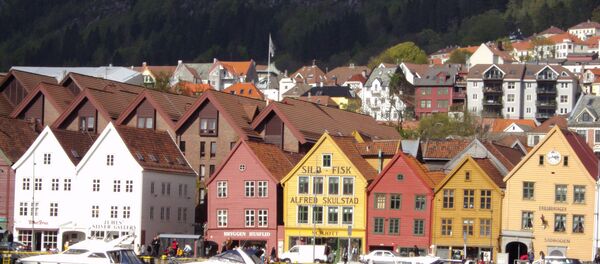Last year, Norwegian border officials raised their eyebrows at the surging number of asylum-seekers cycling in from Russia's adjacent Murmansk Region. In late 2015, about 5,500 asylum-seekers arrived in Norway via the Storskog border crossing point, most of them hailing from Syria. Norway subsequently closed its borders, whereupon the migrants switched to Finland, which took in around 1,700 asylum-seekers, mostly from Afghanistan.
Following the unexpected influx from East, a number of high-ranking Norwegian and Finnish politicians blamed the incursion on Moscow's scheming.
"This is Russian hybrid warfare against Norway. The reason is that we are a NATO country which shares a border with Russia," an anonymous security source told Norwegian news outlet Aldrimer in November 2015.
This erroneous belief was later shared by none other than Finnish Defense Minister Jussi Niinistö.
"We're not officially at war, but we can see some hybrid operations in Finland as well. One of them is that the eastern border is leaky," Niinistö told Finnish newspaper Hufvudstadsbladet in January 2016.
Norwegian researchers Arild Moen and Lars Rowe of the Fridtjof Nansen Institute refuted suspected Russian involvement, hybrid war or altered border controls. According to their research, the simple and most convincing explanation is the self-interest of migrants, who found a cheaper and less risky route.
Knowledge of the Arctic route via Murmansk spread quickly to crisis-ridden countries in the Middle East. According to the report, photos of refugees cycling their way to Norway appeared in Syria through a Russian TV channel. By their own admission, refugees had to pay a $2,500 for a trip via Murmansk, whereas the perilous voyage to Greece would have cost $18,000.
"After all, all does not depend on Putin," Kivisen told Finnish national broadcaster Yle.
Founded in 1958, the Fridtjof Nansen Institute (FNI) is named after the Norwegian Nobel-winning polar researcher Fridtjof Nansen. The FNI specializes in Arctic-related issues, Russia's policy and international maritime law research. The Institute was funded by the Norwegian Research Council, numerous Norwegian public authorities, private businesses and the European Commission.







